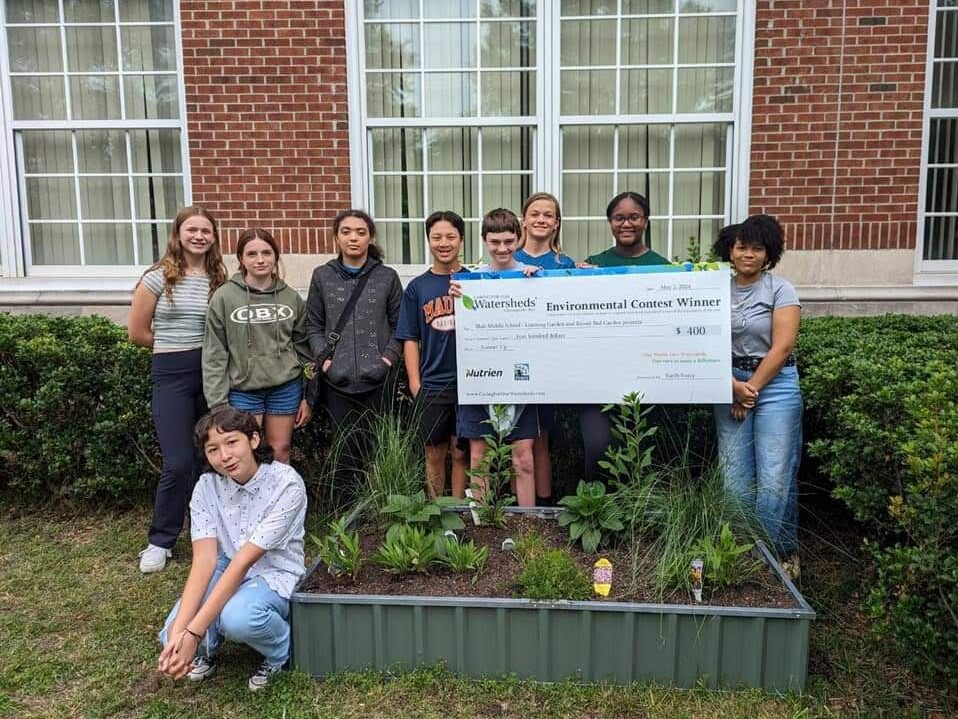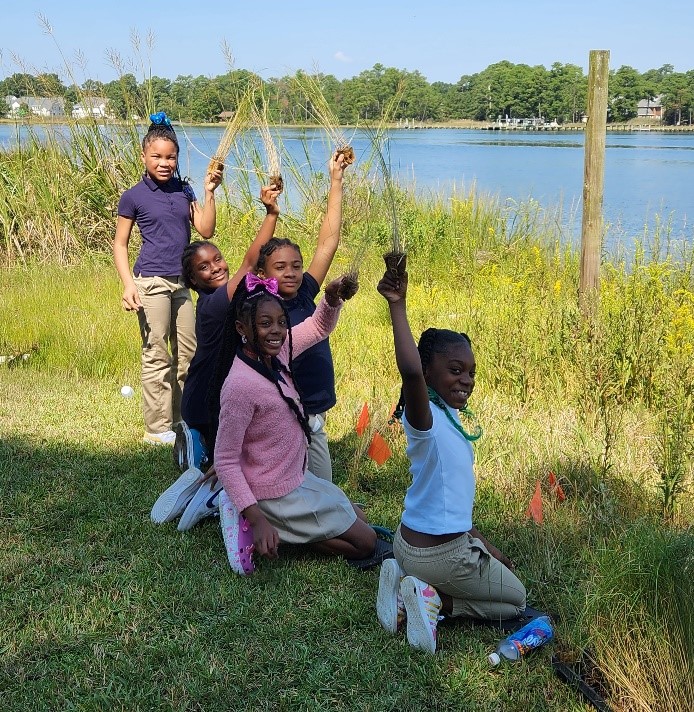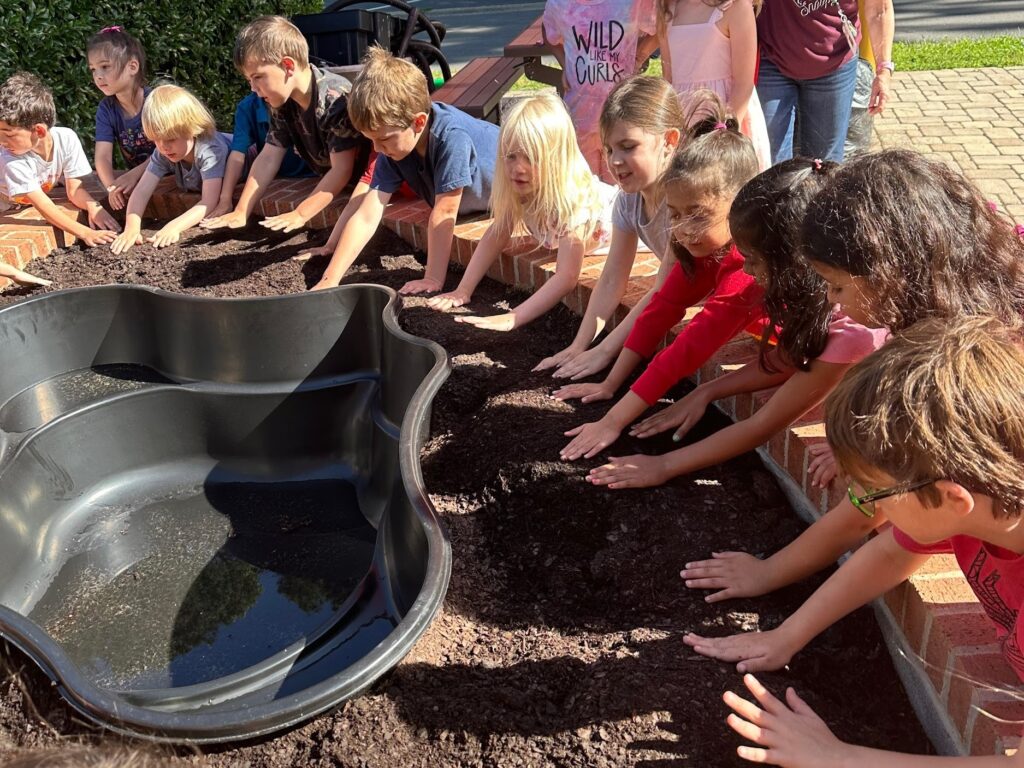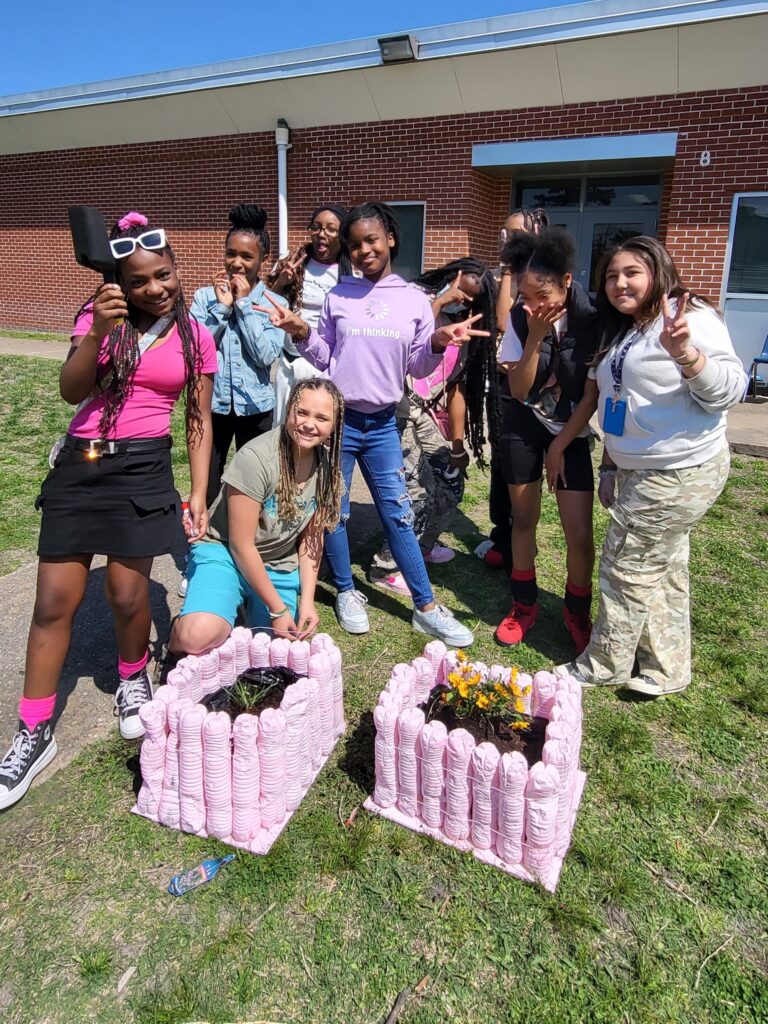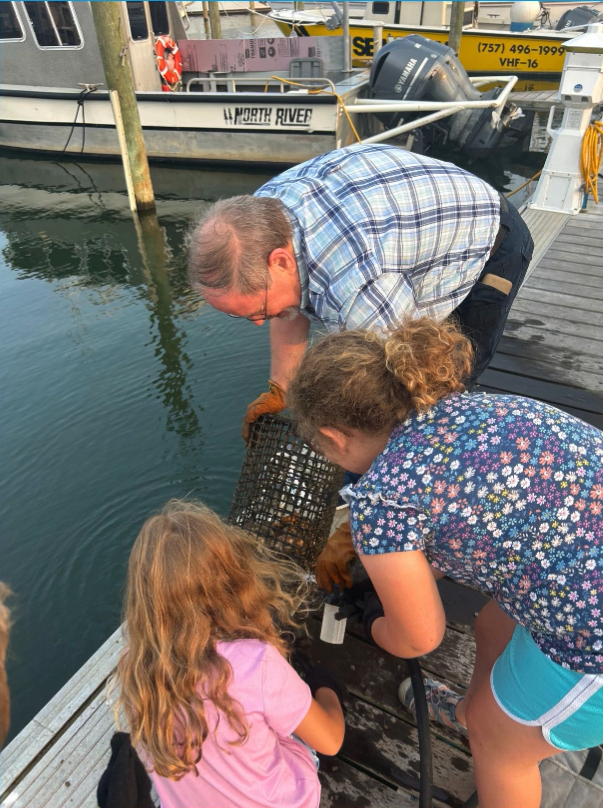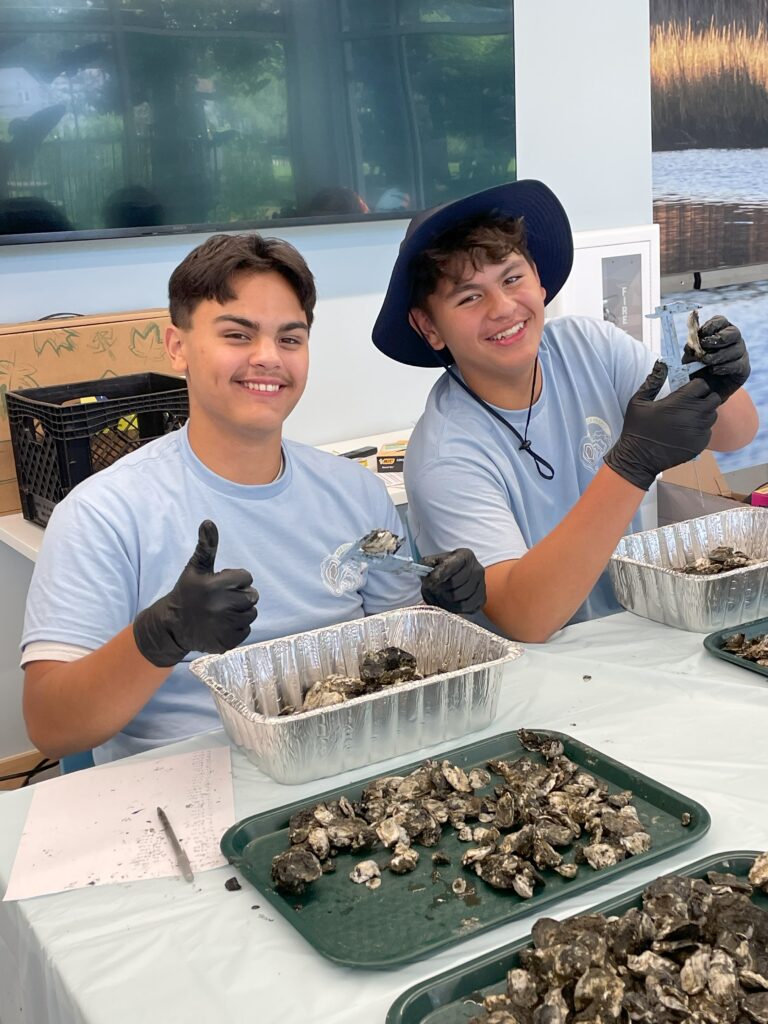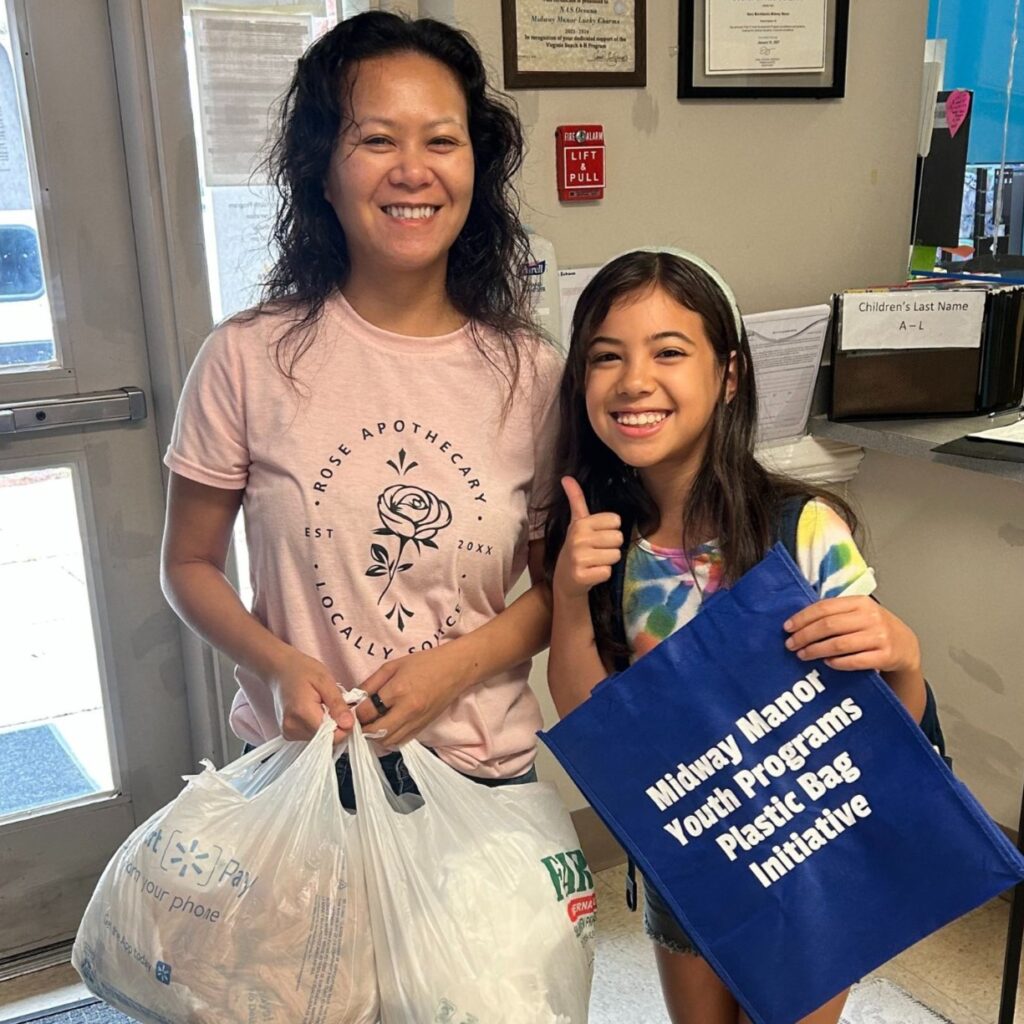8th-graders started a Native Plant Learning Garden containing native plants that excel at absorbing excess rainwater, reducing local flooding during rain events while attracting native insects and birds to improve local biodiversity in their school’s urban setting.

